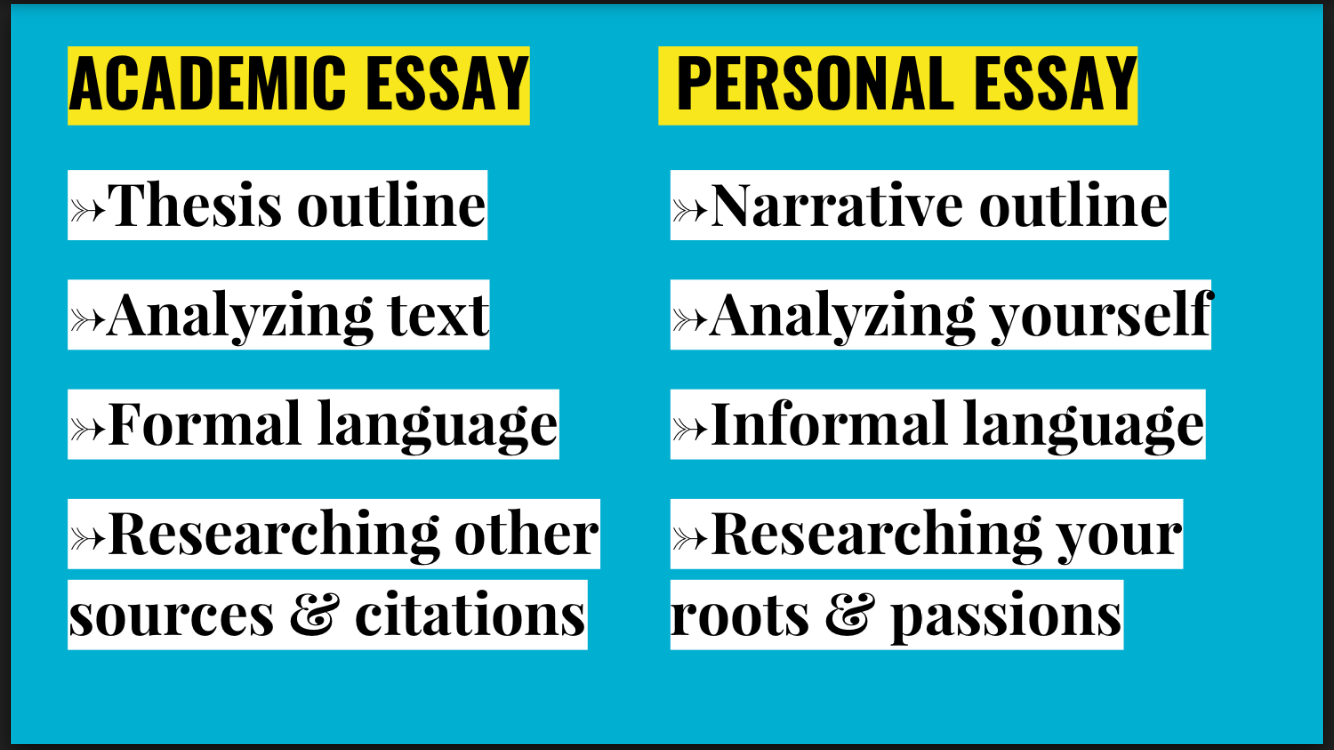7 Secrets to Writing a Successful College Transfer Essay
/You kicked butt during four years of high school, survived a crazy intense senior year, and matriculated at your dream school! But what happens if the dream turns out to be sort of a nightmare?
Transferring schools is more common than you think: college transfer enrollment grew by 4.4% in 2024 compared to 2023, according to the National Student Clearinghouse. Because your chances of getting accepted as a transfer student are still relatively hard, however, make sure your “why transfer” personal essay avoids these common transfer essay mistakes.
Consider that for 2021-2022, the median rate of acceptance for transfers to Ivy League schools was less than 5%. That said, you have a greater chance of getting admitted as a transfer than a regular applicant, says Forbes, especially with in-demand schools like Northeastern, Columbia, and Cornell. As most transfer deadlines start February 15, start drafting your essay now to make sure you have time to fix these transfer essay problems I see all the time.
1) Don’t Sound Negative or Dismiss Your Current College
Even though you’re leaving your current school for obviously negative reasons, you have to be strategic in how you explain your reasoning to the admissions team so you don’t sound like you’re complaining. It’s a difficult balance to strike, for sure, but you have to be very concrete in what change you’re looking for so it doesn’t sound like you’re bad-mouthing your current situation (or worse, not appreciating it for superficial reasons like rankings).
You don’t want to sound like you're making excuses and not taking the initiative to make your current college work for you. You want it to seem like you've exhausted every resource and really belong somewhere else. Listing specific examples of what is missing will help with this, in addition to listing what kinds of resources, classes, research, opportunities, and/or professors you hope to have at your next college.
If, for example, you find your current curriculum constraining, explain in concrete detail how it limits your ability to take additional classes outside of your major. Maybe giving an example of the type of liberal arts curriculum you prefer is more effective.
Or if you feel that your current school is not academically challenging, that alone feels very negative. Instead, name specific types of challenging classes that are missing or specific types of classes that you hope to take in your next school. Not sounding negative is the #1 key to transfer essay success.
No: “UW created an intellectually demanding environment but lacked in learning to advance outside the classroom that had a mission to change the world.”
Yes: “UW has offered me a fantastic education, but with huge lecture courses and an undergraduate enrollment of over 31,000 versus Stanford’s 7,060, I feel starved for engaging seminar discussions.”
2) Add Specific Examples of What’s Missing In Your Current School
For example, if you’re looking for a better Silicon Valley connection, instead of saying your current school doesn’t have a strong entrepreneurial focus, it would be more effective to explain how there are no resources for future entrepreneurs and you've exhausted all the options in finding them.
Are there no entrepreneur clubs or business-oriented classes? Is there no tech hub in your current school? By naming specific facts like these, you're making your case objectively instead of sounding subjective.
You don't want to sound holier-than-thou, like you’re better than your current school. The more specific your examples are, the less negative this comes across.
No: “I haven’t felt as challenged in class as I hoped I would be. While I have been enjoying some classes, I don’t feel as academically stimulated as I want to be.”
Yes: "While stimulating and exciting, the liberal arts curriculum does not focus on career-oriented classes for entrepreneurship, which is the key to success in my future field."
3) Focus on Your Transfer College’s Advantages
Another solution to not sounding negative in your transfer essay is flipping the perspective to describe the type of environment you're hoping for so you don't sound like you’re complaining. For example, are there any professors you’re interested in working with at the new school? Does your new school have a unique internship program or research opportunity that most undergraduate schools don’t offer? Flipping the perspective and focusing on what you’re hoping to find next is a great way to avoid the negative trap. Remember to be super specific and avoid the “why this college essay” common mistakes of being generic enough that your description can apply to any college.
No: “Cornell provides its students with an academic experience that is second to none. Cornell is a community of students who are smart, ambitious, and committed to making the world a better place.”
Yes: “Beyond the utopian surroundings, Cornell’s ‘any person, any study’ mission spoke to me. Cornell Engineering’s collaborative and hands-on culture is the perfect place to design world-changing products.”
4) Show How You’ve Changed Since High School
Perhaps you’ve had a revelation freshman year about your new career path—and unfortunately, your current school doesn’t have a strong program for this new major. You have to be really clear about this sudden change. What changed since you first applied senior year of high school? What changed in the past year that you've been at your current college?
No: “Cornell has always been my dream school. The only college I want to transfer to is Cornell because of its prestige and rigor in academia.”
Yes: “With Cornell’s unique interdisciplinary major, I hope to be a part of the new class of innovation. Beyond these few classes, however, BU does not have an ORIE major.”
Another crucial aspect is to address the deeper “why” behind the career or major change; otherwise, it will sound hollow and superficial. If you decided you want to focus on social impact, for instance, tell us what made you realize you wanted to make a difference. Why all of a sudden did you care about how many people you could impact? That's a pretty major paradigm shift - major decisions like these don't happen lightly every day.
It’s harder to be invested in your growth without that necessary self-reflection. Remember that admissions officers expect a higher level of maturity in a transfer essay, so diving deeper into your past motivations is crucial in showing that. Those self-aware details make all the difference in which types of stories leave an impression on the admissions officers and which types of stories get skimmed and forgotten.
5) Add Clear Objectives For Your Transfer Essay
If you’re transferring colleges to pursue a different major or career, be really specific about your future goals. Let’s say you decided to change your major from literature to gender studies. Give the admissions officers a sense of how you will pursue this new academic passion.
How do you hope to develop this topic and educate others? Do you want to pursue a master’s or Ph.D. in the topic, for example? There’s no pressure to stick to this plan, of course, but it would be good to reference some kind of path, if possible, so you seem forward-thinking. Knowing that would also help you explain your reasons for transferring more effectively since the new school might have a better path and resources for a Ph.D., for example.
No: “It’s through these opportunities that I hope to develop a deeper understanding of Asian American topics.”
Yes: “With these opportunities, I hope to eventually pursue a Ph.D. researching the Korean American population of my hometown in Los Angeles.”
6) Don’t Waste Any Of Your Precious 650-Word Count
Instead of listing extracurriculars they will already see in your Activities List or classes they will find in your transcript, dive deeper into one of the activities that relate to your reason for transferring. Your transfer essay should present or develop new information they can’t find anywhere else in your application.
For example, did you pursue your new passions by enrolling in summer school or reading books outside of class for your own curiosity? Make that pursuit clear since it shows initiative.
Any recent accomplishment should be added to your application. You want to impress the admissions officers and not taking credit for your wins seems like a missed opportunity.
No: “Having taken Principles of Financial Accounting and currently taking Management & Organization, Strategic Analysis, and Managerial Accounting, I have learned so much financial knowledge.”
Yes: “Foundations of Finance and finance electives will arm me with in-depth and well-rounded financial knowledge, while the Management Consulting track’s Dealing with Data and Competitive Analysis will train me to think like a professional consultant.”
7) Own Your Mistakes in High School
When explaining your reasons for transferring, aim to sound less negative and more proactive. Everything is about tone and you want to sound like you take accountability for any past mistakes in addition to doing everything you could to make the most of your current situation. Anything else will read like a red flag to admissions officers.
If you have poor grades in high school, be specific about why. If you were busy with other projects, take accountability by owning your mistakes.
No: “Unfortunately, my time spent doing projects had an effect on my high school performance.”
Yes: "My grades suffered as I spent most of my time building and running three apps and two websites."
Details like these are important to show that you weren't just delinquent in high school, but a passionate and talented inventor who had trouble balancing finals on top of being your own CEO. Quantifiable details like these really make a difference.
And whatever you do, make sure you take accountability. Instead of saying you were pressured into attending a lower-tiered school, rephrase that loaded language a tad more sensitively. What kind of high school did you go to? Was it a large public school with few guidance resources? Why were you discouraged from applying to other schools? Who specifically discouraged you? Why and how exactly were you pressured to choose this school? Saying you were pressured to go deprives you of agency, and does not make you look good because you are blaming people and finding excuses instead of taking responsibility, which is a major red flag to admissions officers. How honestly you phrase this situation is key to your transfer success.
Want to work with me on transforming your transfer essay? Claim your spot for an upcoming virtual editing workshop below:
Monday, March 16th, 2026 | 5pm EST
Every transfer essay needs multiple rounds of edits before it’s ready for submission. You’ll learn the techniques of self-editing including common mistakes to avoid and what to consider when cutting for word count. Plus, students can submit their drafts for an anonymous live edit on-screen. The 1-hour live workshop class includes:
60-minute interactive class workshopping student-submitted essay drafts
Live edit of transfer essay on-screen followed by group discussion
Individualized suggestions for improvement
Line-by-line edits and big-picture strategy ideas
Limited to 10 students for personalized support
Editor’s Note: This post was originally published on February 2019 and has been updated with new relevant information.






























